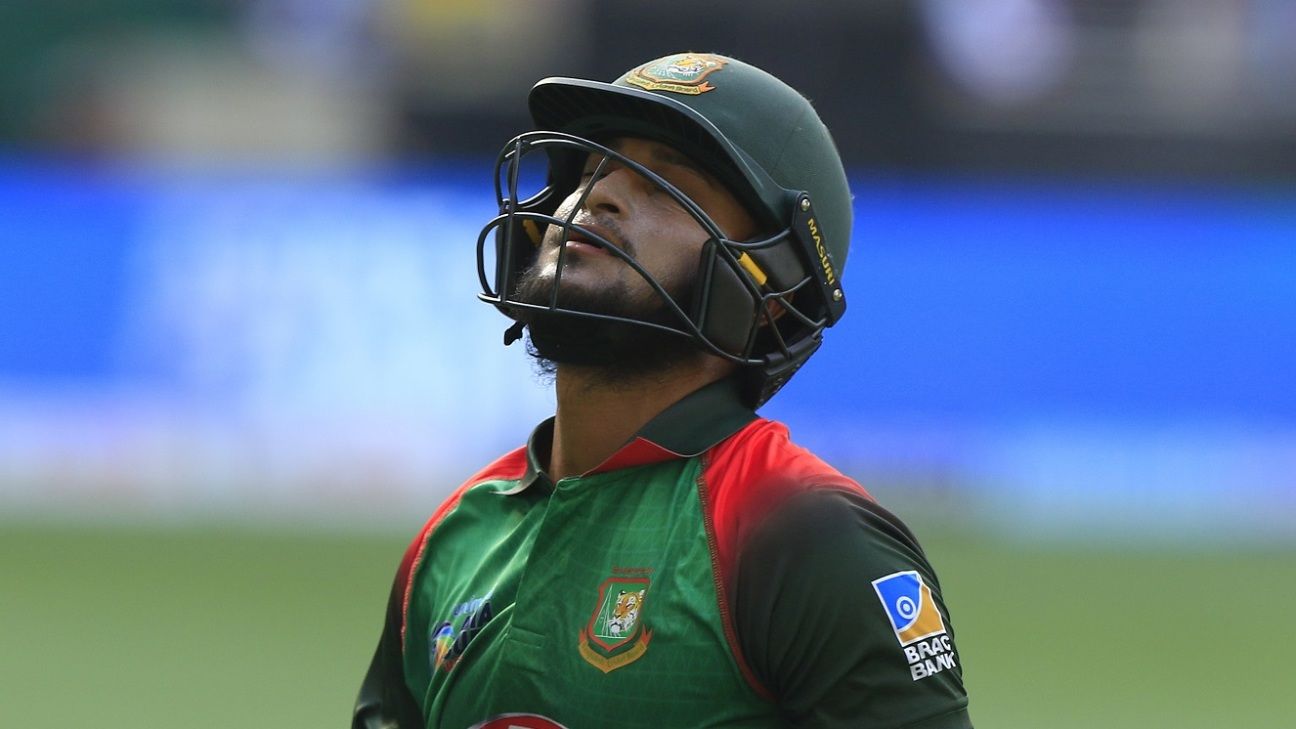
Shakib Al Hasan, Bangladesh's Test and T20I captain, has made it clear that he is not "mentally prepared" or ready or interested in continuing to lead the team in any format, and would rather focus on his own game to be of greater value to the cause. He wants the younger crop of players be given more responsibility over the next four-year cycle, but understands that the team needs him to lead in what is a tricky phase.
"I am not even mentally prepared to lead in Tests and T20s," Shakib told the daily Prothom Alo. "But the team is not in a good shape, so I understand that I have to lead to get it back on track. Otherwise, I am not really interested in leading in any format. I can focus on myself if I am not captaining, which would help the team.
"I want to see the younger lot to take responsibility. We [Mushfiqur Rahim and he, in the main] got captaincy at a very young age, but they [the next bunch] have now turned 26-27. Unless you give them responsibility, you won't know what they can do. The World Test Championship and T20 World Cup are up ahead, so we should plan for the next four years."
The current captaincy stint is Shakib's second in a full-time capacity in Tests and T20Is. He became captain of T20Is when Mashrafe Mortaza retired from the format in April 2017, and got the Test captaincy after the sacking of Mushfiqur Rahim in December that year.
Shakib's public expression of disinterest in the role - a first in his 13-year-long international career - stems from his earliest experiences as Bangladesh captain. After deputising for an injured Mashrafe from mid-2009, he was made the permanent captain in 2011, but eight months later, he lost his job in the aftermath of a drab World Cup campaign. He, however, has since been the most consistent performer in the team, and enjoyed a dream run in the World Cup earlier this year. His consistency, not to mention his seniority, also puts him in line for the ODI captaincy once Mashrafe retires.
Shakib pointed out that a captain, by default, is expected to perform consistently himself, so he doesn't get too bogged down. He cited Mashrafe's example from this year's World Cup, where the captain took just one wicket in the eight matches Bangladesh played.
"I had the belief that we could go further in this World Cup, and it may have been possible if we had contributions from everyone," Shakib said. "When a player doesn't perform, he thinks more about himself than the team, which creates the problem. I think it happened in Mashrafe bhai's case.
"It was a big issue, for himself and the team, that the captain wasn't performing. The captain has to perform, but we were behind in that aspect. It wasn't impossible [to reach the semi-finals]; we made a good start to the World Cup, but we couldn't hold on to it."
Bangladesh's - and Shakib's - next assignment is a one-off Test in Chattogram against Afghanistan starting September 5, followed by a T20I tri-series against Afghanistan and Zimbabwe.















 Phone: (800) 737. 6040
Phone: (800) 737. 6040 Fax: (800) 825 5558
Fax: (800) 825 5558 Website:
Website:  Email:
Email: 






